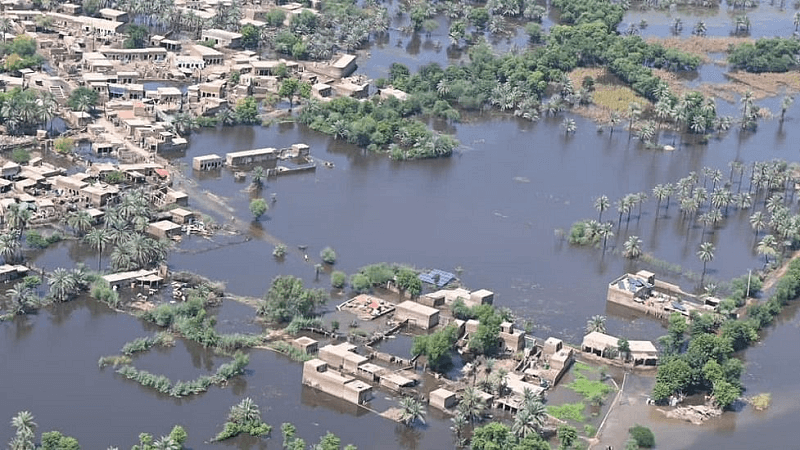Advantages and Disadvantages of Flood

Advantages and disadvantages of floods can vary depending on the context and the severity of the flooding. Here are some general points to consider:
Advantages of Floods:
Renewal of Soil Fertility: Floodwaters can deposit nutrient-rich sediment on the soil, contributing to increased fertility. This can be beneficial for agriculture in some cases.
Ecosystem Benefits: Floodplains and wetlands can serve as important habitats for diverse plant and animal species. Periodic flooding is a natural part of these ecosystems, supporting biodiversity.
Recharge of Groundwater: Floodwaters can contribute to the replenishment of groundwater, which is crucial for maintaining water availability in aquifers.
Creation of Alluvial Deposits: Floods can deposit alluvial soil, which is rich in minerals and organic matter, enhancing the productivity of the land.
Disadvantages of Floods:
Property Damage: One of the most significant disadvantages of floods is the potential for extensive damage to homes, infrastructure, and agricultural land.
Loss of Lives: Floods can pose a direct threat to human life, causing injuries and fatalities. Swift and powerful floods, such as flash floods, can be particularly dangerous.
Displacement of Communities: People living in flood-prone areas may be forced to evacuate temporarily or permanently due to the risk of flooding, leading to the displacement of communities.
Economic Impact: Floods can have a severe economic impact, causing disruptions to businesses, agriculture, and transportation. The cost of recovery and rebuilding can be substantial.
Environmental Degradation: While floods can have ecological benefits in some cases, severe and prolonged flooding can lead to environmental degradation, loss of habitats, and disruption of ecosystems.
Spread of Waterborne Diseases: Floodwaters can carry contaminants and promote the spread of waterborne diseases, posing health risks to humans and animals.
It's important to note that the impact of floods can be influenced by factors such as preparedness, land-use planning, and the effectiveness of flood control measures in place. While floods can have some natural benefits, their potential for causing harm makes them a significant concern for communities around the world.
Thank you.